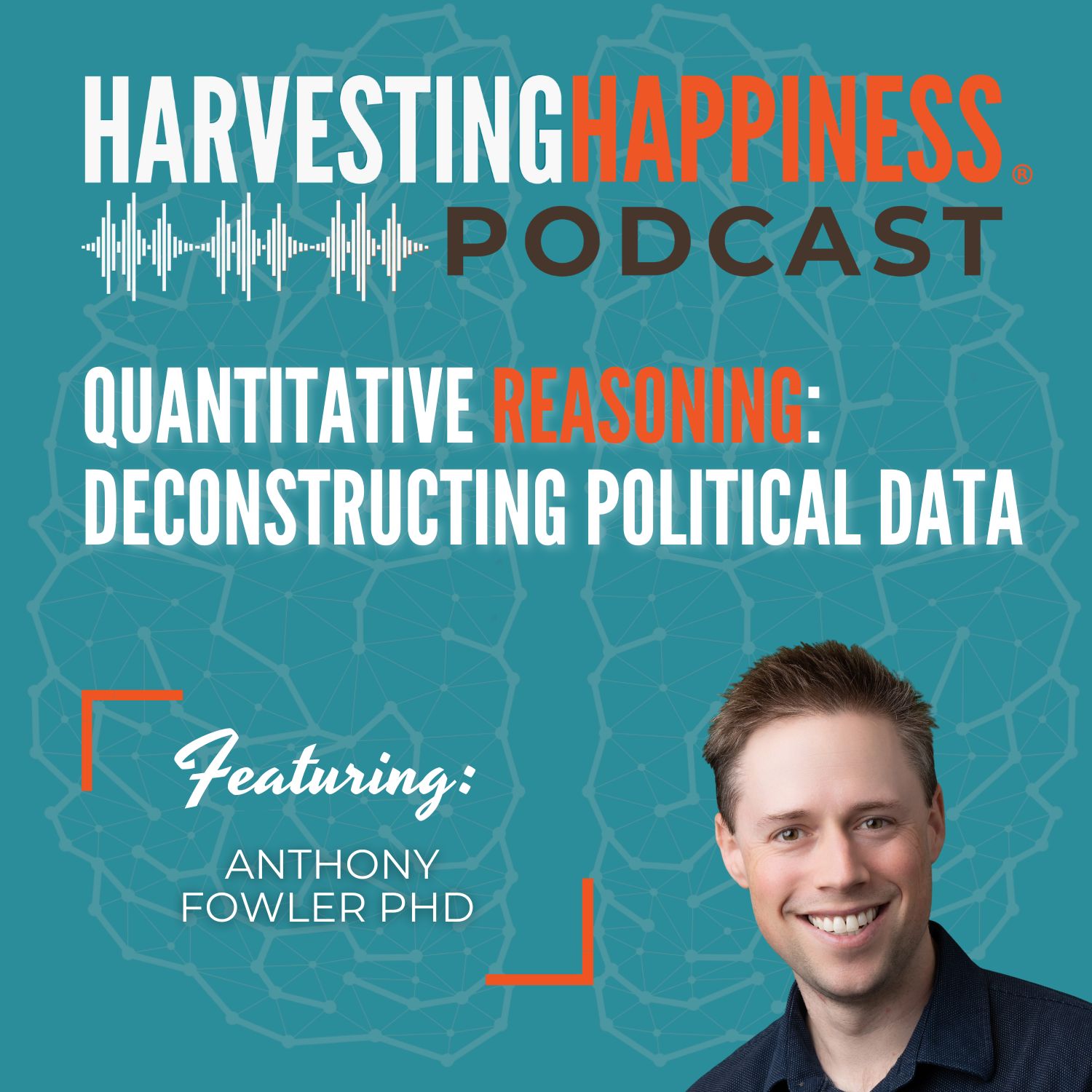
The whole world knows the outcome of the recent US election. Many are shocked that Americans chose the leader they chose. What data offered a glimpse into the concerns of everyday Americans that could have predicted the outcome? And, was the data that political scientists studied selective or transparent?
To better understand what drives public opinion and political reasoning, Harvesting Happiness Podcast host Lisa Cypers Kamen speaks with Anthony Fowler, a professor at the Harris School of Public Policy at the University of Chicago where he conducts quantitative research on elections and politics.
Anthony deconstructs public opinion and political data to offer a quantitative analysis on the reasoning behind why people think, and vote, the way they do.
This episode is a special edition of the Good Citizens Election Season Survival Guide designed to help restore common sense and sanity in a crazy world…
Anthony Fowler PhD — Quantitative Reasoning:
- Deconstructing the data of who voted for who and why. {2:58}
- Making sense of the public opinion data. {8:20}
- A quantitative analysis of predicting the presidential election through economic data. {11:04}
- Are natural disasters and conspiracy theories impacting public view? {17:44}
- How some data gets transformed into belief. {25:45}
Meet Our Guest:
Anthony Fowler PhD, is a professor at the Harris School of Public Policy at the University of Chicago. He conducts quantitative research on elections and politics.
He is a co-author of Thinking Clearly with Data, an editor of the Quarterly Journal of Political Science, and a host of Not Another Politics Podcast — launched and produced through the University of Chicago Harris School of Public Policy, providing a fresh perspective on the biggest political stories by focusing on research and data, not pundits and politicians.
For more brain food, visit www.harvestinghappiness.com.















